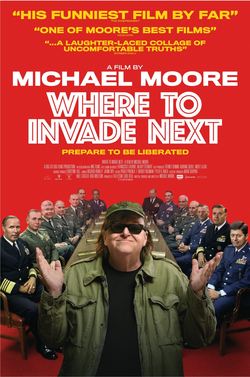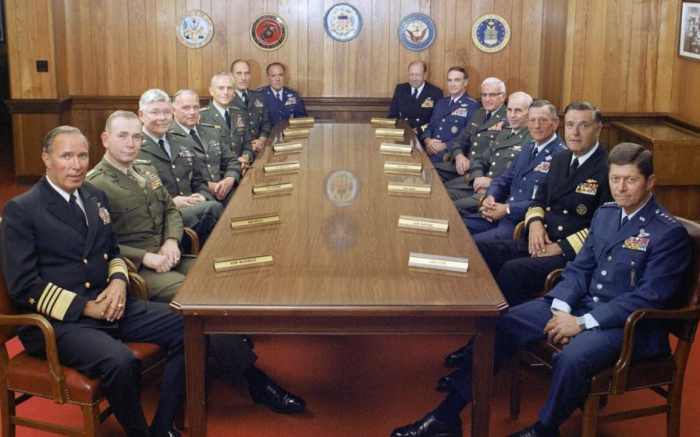With the deadline looming for the Fake Geeks teams to submit our lists for Top 15 films of 2016 (so we can populate a combined Top 20 list), I’ve been using every medium possible to catch up. In this case, I used my trusty Lovefilm account to grab this doc from last summer.
The original review was posted at Fake Geeks, but you can read it in full below.
 Directed by | Michael Moore
Directed by | Michael Moore
Produced by | Carl Deal, Tia Lessin, Michael Moore
Written by | Michael Moore
Starring / Narrated by | Michael Moore
Run Time | 120 minutes
Certificate | 15
Plot | Michael Moore goes on a fact finding mission to discover which policies would benefit the United States, were they to adopt them.
Review | Michael Moore documentaries can be more than a little hit or miss. He can make moving pieces (Bowling for Columbine), as well as films that lift a lid on profit-driven governmental policies (Sicko). He can also make sensationalistic, conspiracy-theory guff (Fahrenheit 911). Though lighter in tone to all those previously mentioned, Where to Invade Next thankfully harkens back to his work on Sicko more than anything else.

For those that remember his 2007 feature on the health insurance and pharmaceutical industries, you may recall a scene where he goes to France and asks questions of how the system works there. We discover that their higher tax rates take care of a number of issues, which expands past the limits of healthcare briefly to discuss paid leave for life events (such as your Honeymoon or moving house). Where to Invade Next can be boiled down to being a near two hour version of this scene, focussing on many facets of every-day life.
After a mildly humorous, fictional set-up (he explains that the Government has asked his opinion on where they should invade next), Moore treks across to Europe and Northern Africa with the idea of pilfering any ideas he comes across that could be of benefit to the US of A.

While Moore’s film making style and overt political leanings are never going to win over staunchy conservative right-wingers, Where to Invade Next is a nonetheless entertaining film, and some of the things he discovers about each of the countries he visits is genuinely surprising (the amount of paid annual leave Italians get may raise an eyebrow, as may Norway’s prison system, Slovenia’s free University education or Portugal’s stance on drug possession).
In a departure from many of his other releases, Moore retains a relatively light tone throughout and even offers a surprisingly upbeat outlook come the conclusion. This helps elevate Where to Invade Next towards the better end of ‘good’.
 #17
#17